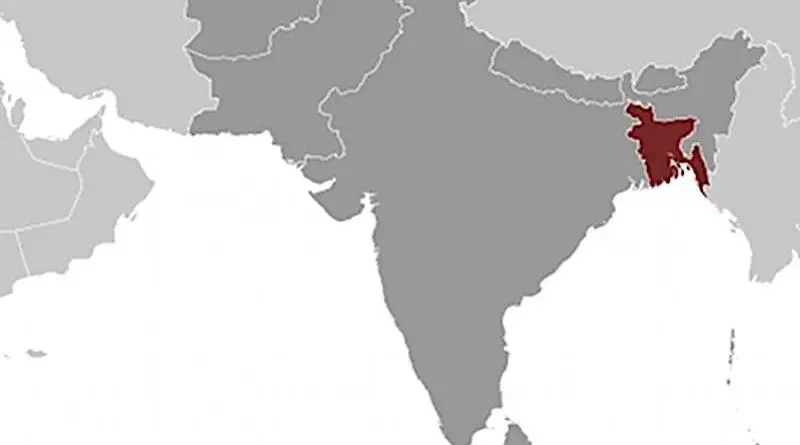Justice For Tanu: The Rise Of Micro-Democracy In Bangladesh – OpEd
By Abu Sufian Shamrat*
Tanu rape and murder is the latest scare of violence that is being perpetrated against women in Bangladesh. As social movements and social media gather steam around the issue, ‘Justice for Tanu’ has shaken the conscience of the people of Bangladesh again. But, for how long?
Sohagi Jahan Tanu, 19, a second year history student of Comilla Victoria College and also a member of Victoria College Theatre, went missing on March 20, hours after she had gone out of her house at Comilla Mainamati Cantonment for private tuition. Later, Tanu’s father, Yaar Hossain found his daughter lying senseless with severe injuries to her body in a bush adjacent to their house. She was then whisked off to Combined Military Hospital where doctors declared her dead. In the first post-mortem no sign of rape was found. Also the police could not make any headway in the investigation and none were arrested. Even the CID questioned several army personnel for their involvement in this case, but the investigation report is yet to be out.
Almost forty days have passed without any considerable result and the social movements centring Tanu murder are fading out day by day. In the meanwhile however, a 13 year old girl from Rajshahi demonstrated her anger as she roamed around the streets of this divisional city with a placard that reads: ‘No one killed Tanu’.
If we analyse the emotions attached with this comment, then the following arguments can be made. First, the girl is questioning the willingness of the law enforcement and investigating agencies as well as the legal structure in dealing with a case that could possibly put the military in the dock. Secondly, she is also bringing to light how easy it is for things to fade away from public memory. When Tanu was murdered it became leading news, but now it stands consigned to inconspicuous corners. Thirdly, the Rajshahi girl is talking about the pending cases of violence against women. Fourthly, the teenage girl is not only talking about the visible physical violence against women but also she is also highlighting the growing intensity and prevalence of psychological, familial, inter-personal, official, organizational, and sexual harassments against women as neo-social diseases contaminating the social as well as inter-personal fabric. Fifthly, she is also talking about the patriarchal character of the society of Bangladesh as well as the whole South Asia where a culture of violence against women continues to prevail. Sixthly, her statement, ‘No one killed Tanu’, questions the efficacy of institutional arrangements of the state to provide security women against sexual and other kind of gender related violence.
The anger of the 13 year old Rajshahi girl is valid and bears a message for the state as well as the society to take effective steps in order to diminish and eliminate violence against women. The only matter of satisfaction in all of this is that Bangladesh is witnessing new social movements, where the social groups and organizations are assembling to stir social and cultural changes in the society. Now people are organizing not for capturing the state power and meeting their political interests. Rather, they are gathering to ensure peace and stability, environmental security, justice for the greater humanity and so on.
Theoretically these movements are often termed as ‘new populism’ or ‘disorderly politics’ or ‘new politics’ or ‘non-institutional politics’ or ‘reformist politics’ based on collective action, network society, informal networks, participatory decision-making, decentralized structure etc. The movements led by social organizations and in the social media circles demanding ‘Justice for Tanu’ bear a message: that government accountability is a must. This new politics is expected to bring a new dawn of micro-democracy that would reflect public opinion in the state activities firmly. And, it will be the outcome of this micro-democracy that would come to ensure that a gender-balanced and equal Bangladesh is no longer a utopia, but a realizable reality.
*Abu Sufian Shamrat is a Researcher in Bangladesh who writes on contemporary social issues. He can be reached at: [email protected]

